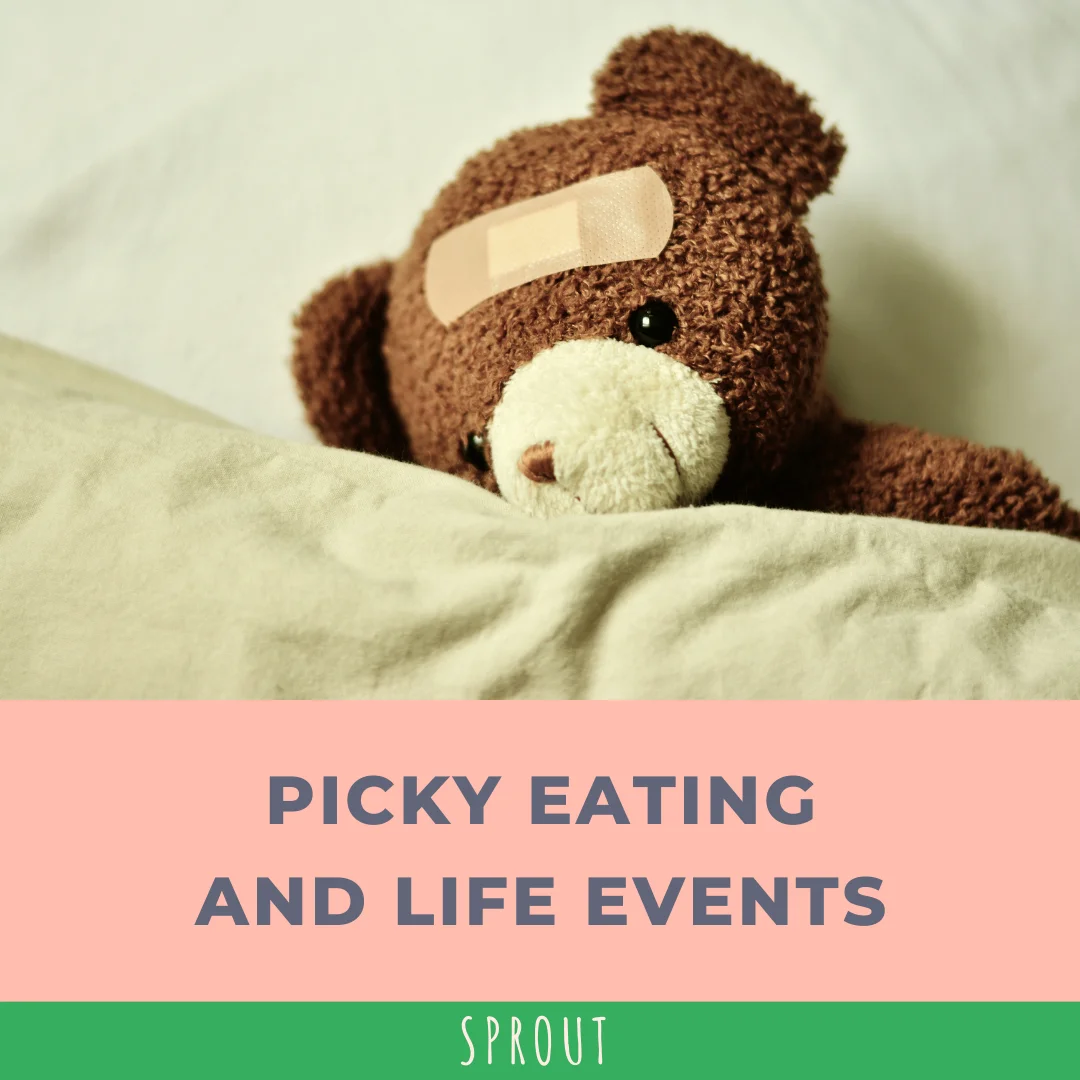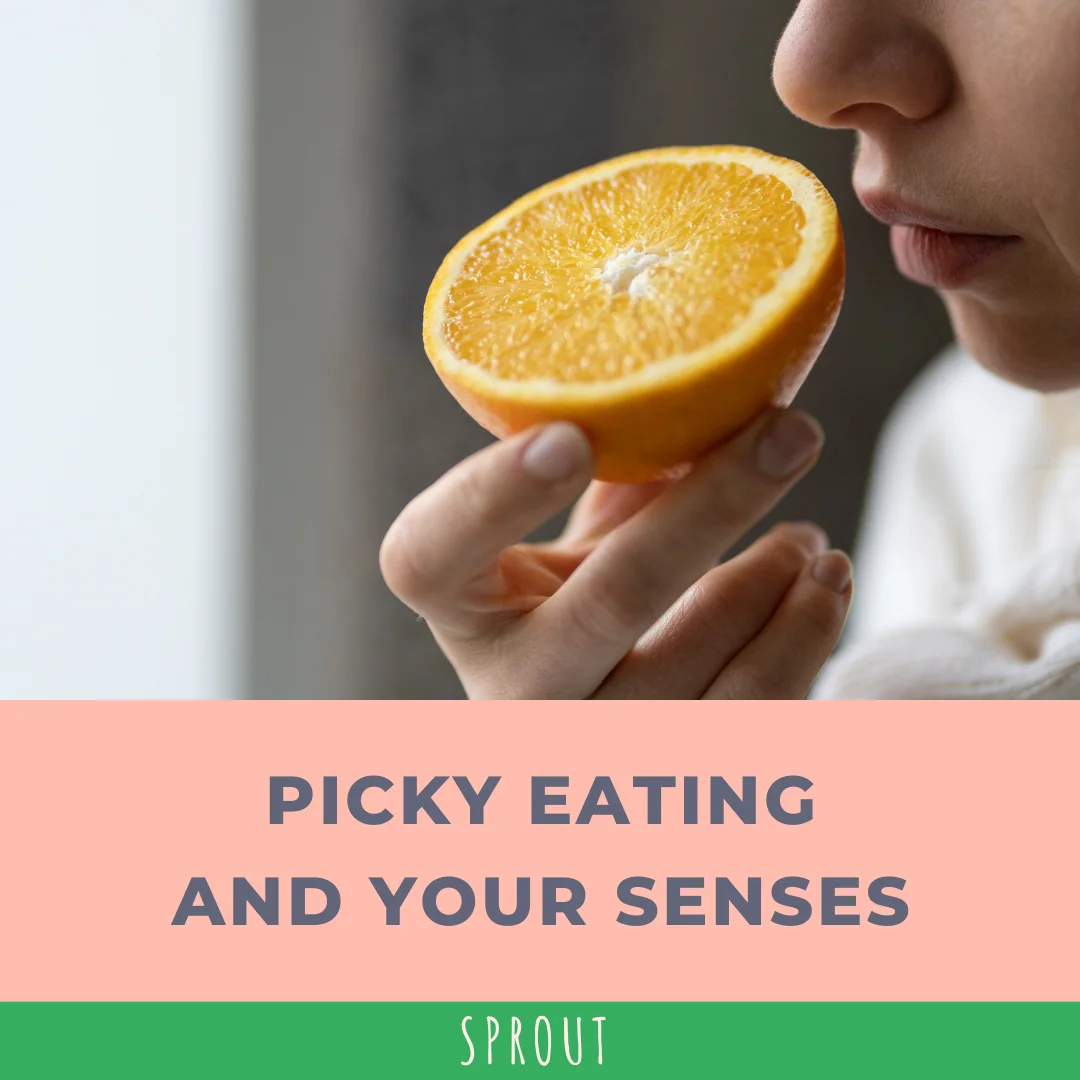Food neophobia - a fancy word for the fear of new foods, often shows its face in toddlerhood, and it’s not usually a very welcome guest at the dinner table! It’s a story we hear every day when working with parents of picky eaters - “they ate everything until 18 months, and then everything changed!” So - the big question is - what are we supposed to do about this!?
Can you “cure” it?
Cautiousness and scepticism around new foods is usually considered a part of normal child development, so it’s not typically something that needs to be “treated” or “cured”. On the other hand, understanding it, and knowing how to respond in order to help your child’s food enthusiasm eventually return can be a big help. To read more about neophobia, what it is and why it happens, check out this blog [add link to what is food neophobia blog].So, let’s jump into some ways you can respond to a fear of trying new foods to help your little one through this tricky phase of development.
Serve some familiar foods
First of all - serve one or two foods that your child is familiar with at every meal and snack. We know - your child may be very unpredictable and it can feel like you can never guess what they will accept from one day to the next. They may tuck into 5 slices of watermelon one day, and turn their nose up at it the next. Remember that this applies to adults too - just because you eat (and often enjoy) apples - doesn’t mean you’ll take one every time the fruit basket is replenished in the office. The foods you serve don’t have to be foods that your child always accepts - just foods they are familiar with, that you know they have eaten willingly in the last few weeks.
Eat together
Regularly sit down together and eat meals with your child. If the foods you like to eat are too unfamiliar for your child and they are unhappy with them on their plate, then serve foods buffet style in the centre of the table and let everyone take what they want. Just seeing the foods on the table, and seeing you calmly eat them, does wonders for reducing your child’s cautiousness. But this takes time! Know that your child may need to see foods many many times before they feel willing to take some to explore - the pace is different for everyone. There is no need to over-exaggerate how tasty everything is, or keep asking if they want to taste what you’re eating - pressure alert!! Just keep things neutral and chat about non-food topics. The less focus on your child’s eating decisions - the better! One day they may surprise you.
Avoid offering alternatives
One thing you can do to prevent food neophobia from becoming more pronounced, is avoid offering alternative foods during or after a meal. This is once you’ve already provided a familiar food that you know your child can eat of course! If your child eats very little or nothing, that’s ok. They may be testing things out, may be feeling a little unwell, or may simply not be hungry. Even if it means there’s a bit of “hanger” (hunger mixed with anger) to deal with, try to wait a couple of hours until the next planned meal or snack time to serve something else. Toddlers are quick learners - and offering them something else just after a refused meal very quickly reinforces food refusal, especially if the food offered after is easier to eat, or more preferred.
Stay away from persuasion!
Imagine if you really didn’t want to try a cockroach (which believe it or not - is edible!), would someone watching you, and encouraging you along, change your mind? Although encouraging your child is a natural instinct, lots of research shows that when children feel “pressure”, or an expectation from others to eat or try something, this can make avoidant eating worse. If they are already nervous about eating something, being the focus of the meal and the centre of everyone’s attention, can feel uncomfortable. While all the encouragement comes from a loving and caring place, it may unintentionally increase anxiety around trying new foods. So, stay away from any kind of reasoning, bribing, rewarding, or otherwise persuading your child to try things. Focus on enjoying your own food and spending nice time together with your child - and their food curiosity will follow!
Don’t take it personally
When you’ve put all that time and energy into making toddler-friendly-muffins, special recipes from fussy-eater websites, home-made chips and chicken nuggets, and sandwiches cut into fun shapes - we know it hurts when the food goes uneaten! But as we’ve covered in other blogs [link] - food neophobia is a part of expected toddler development, and is something that humans developed through evolution. So, try not to take it personally! It’s not something you’ve done wrong, you haven’t suddenly lost all of your cooking skills, and it’s certainly not a rejection of your love! If you feel your efforts are going unnoticed, all those special recipes are ending up in the bin, and your child is still stuck on the same list of 10 foods, then it’s time to shift your focus to what YOU want to be eating. Prepare the things you love and prioritise feeding yourself. Add simple sides that your child can manage - even if it doesn’t feel like “dinner” food to you.
Manage your expectations
A big pitfall that many parents make when food neophobia kicks in, is
expecting their child to eat at every meal or snack, or to eat a certain
quantity. The amount that toddlers need to eat is actually pretty small,
and it’s very common for parents to overestimate how much needs to be
eaten. Trying to make sure that your child eats, or finishes their meal, can
easily result in them eating more than they need to! If your child is simply
not hungry - then this can decrease their interest in exploring different
foods. So, if your child is eating very little (or nothing!) at some meals
and snacks, try not to panic.
You likely feel a big pressure from society, friends, or family to be working hard to introduce new foods and expand your child’s diet - this pressure can filter down to your child and make it even harder for them to feel curious. Taking it slow and reducing any pressure or urgency helps much more in the long-term than trying to rush new-food-trying.
Trust your child’s pace
We talked about managing expectations - but you may want to know what expectations are reasonable? The pace of change is different for every child - some will surprise you but for most, slow and steady wins the race. What’s more important than the number of new foods your child is trying, is their body language and comfort level around food. Are you noticing them turning away from foods less? Feel comfortable staying at the table for longer? Making less comments about how disgusting the food smells? These are all early signs that your child’s confidence and curiosity is growing. In Sprout Digital (https://eatwithsprout.com/product/sprout-digital), we talk much more about different paces of change and the signs you can look out for along the way to feel reassured that things are going in the right direction.
Conclusion:
We’ll be honest - much of food-parenting goes against the natural instinct - or at least against the feeding tips and tricks that have been passed down to us from past generations. So, when it comes to neophobia and that toddler scepticism about new foods, there’s no longer a need for endless games of aeroplane with the spoon, or bribes with dessert. What the last few decades of research have taught us, is that the recipe for overcoming food neophobia is calm, consistent, positive shared eating experiences so that your child can build familiarity with different foods without any pressure to eat or try things until they’re ready.

